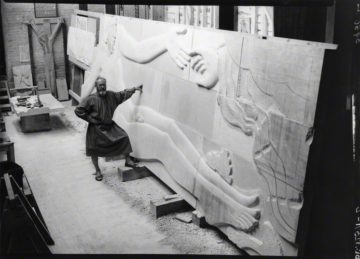Amit Chaudhuri at n+1:
 OVER A DECADE AGO, I began to inadvertently call my mother’s singing “classicist.” I say “inadvertently” because I think I was, without fully realizing it, using the word in Eliot’s sense. My mother, Bijoya Chaudhuri, was a singer of Tagore songs—largely ignored, but admired by a few for being one of the great singers of her generation. In using “classicist,” I may have meant to connect her style to North Indian classical music. And North Indian classical music is “classicist” in the way Eliot, I believe, uses the word: vocal music in this tradition preoccupies itself with the expression of the note, of the raga, but not with emotion in the conventional humanist sense—that is, not with self-expression. One of the ways it does this is by eschewing vibrato and tremolo, which became such an effective means of bringing emotional drama to opera in the Romantic period. However intricate the embellishments in North Indian classical vocal music (and they are the most complex and difficult in any vocal tradition), they must return repeatedly to the stillness (thheherao) and purity of the note. One of the ways this happens is through the ah sound that dominates North Indian classical vocal music.
OVER A DECADE AGO, I began to inadvertently call my mother’s singing “classicist.” I say “inadvertently” because I think I was, without fully realizing it, using the word in Eliot’s sense. My mother, Bijoya Chaudhuri, was a singer of Tagore songs—largely ignored, but admired by a few for being one of the great singers of her generation. In using “classicist,” I may have meant to connect her style to North Indian classical music. And North Indian classical music is “classicist” in the way Eliot, I believe, uses the word: vocal music in this tradition preoccupies itself with the expression of the note, of the raga, but not with emotion in the conventional humanist sense—that is, not with self-expression. One of the ways it does this is by eschewing vibrato and tremolo, which became such an effective means of bringing emotional drama to opera in the Romantic period. However intricate the embellishments in North Indian classical vocal music (and they are the most complex and difficult in any vocal tradition), they must return repeatedly to the stillness (thheherao) and purity of the note. One of the ways this happens is through the ah sound that dominates North Indian classical vocal music.
more here.
